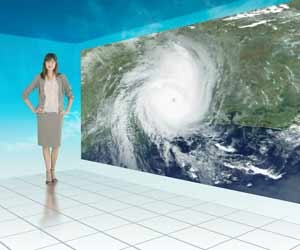Meteorologist Jobs
Assessment and Awareness Sector
Meteorologists, otherwise known as atmospheric scientists, are people who study the weather, record weather trends and make weather forecasts.

By recording and studying past weather trends, meteorologists can better predict future weather and analyze current climactic trends. Some of the most well-known applications of meteorology are analyzing air-pollution levels, levels of global warming and calculating ozone depletion. Meteorologists who specialize in forecasting weather trends are referred to as operational meteorologists. Much of an operational meteorologist’s time is spent using sophisticated computer equipment in order to process and analyze weather data. There are other kinds of atmospheric scientists, including physical meteorologists, climatologists and environmental meteorologists. Many times, their duties and responsibilities overlap. When it comes to the natural energy and green building sectors, meteorologists contribute by analyzing and interpreting weather data in order to aid in the construction of buildings, to determine the best use of land, and to prevent and record pollution or water shortages.
As a meteorologist, you will likely be working in an office, either in cities or on the outskirts of urban areas, possibly near airports which require accurate weather forecasting. You may be working alone, but larger companies and projects will require you to work as a team. Moreover, though your work week will often be 40 hours long, it is entirely possible that you will have to work holidays and night shifts, especially if you are forecasting weather.
Meteorologist Educational and Training Requirements
While you don’t always need a bachelor’s degree in meteorology to get a job as a meteorologist or atmospheric scientist, you will have to have a significant amount of credits in meteorology.
In order to get a job with the US Government, you will need a total of 24 semester hours of atmospheric scientists. Broken down, this amounts to three hours of physical meteorology, six hours of atmospheric dynamics and thermodynamics, three hours of differential equations, six hours of analysis and prediction of weather systems, six hours of college physics and nine hours of physical courses of your choosing. Naturally, with more education and experience come better job opportunities and room for advancement. Applied research and development jobs often require a master’s degree and more theoretical research positions are only available to you if you have a PhD. Since much of your time will be spent using complex computers and programs, you will often need computer science courses as well. Good communication skills are always desirable.
In order to become a professional meteorologist, you will have to complete professional certification offered by the American Meteorological Society. In order to pass, you need the proper educational requirements (a BS in meteorology, atmospheric sciences or a related field with the aforementioned courses) as well as five years of work experience. You must then pass an exam to prove your meteorological knowledge.
Salary and Advancement Opportunities
According to the Bureau of Labor Statistics, meteorologists face promising employment opportunities, though it is very difficult to find a position in broadcasting at the moment and the foreseeable future.
 Meteorological Equipment
Meteorological Equipment
Where you’ll have better luck is with government and research positions. The Bureau of Labor Statistics reports the average annual salary of atmospheric and space scientists to be $82,080. Those who choose to work for the US Government enjoy a better salary, according to the Bureau. Additional experience on the job will increase salaries. Payscale.com reports that the average salary range for atmospheric and space scientists with one to four years of experience ranges from $42,300 to $69,731. An atmospheric and space scientist with 10 to 19 years of experience, on the other hand, can expect to earn from $60,408 to $104,549 annually.


 Teach English in Asia
Teach English in Asia  Cruise Ship Jobs
Cruise Ship Jobs  Alaska Fishing Industry Jobs
Alaska Fishing Industry Jobs  Sharing Economy / Gig Economy
Sharing Economy / Gig Economy